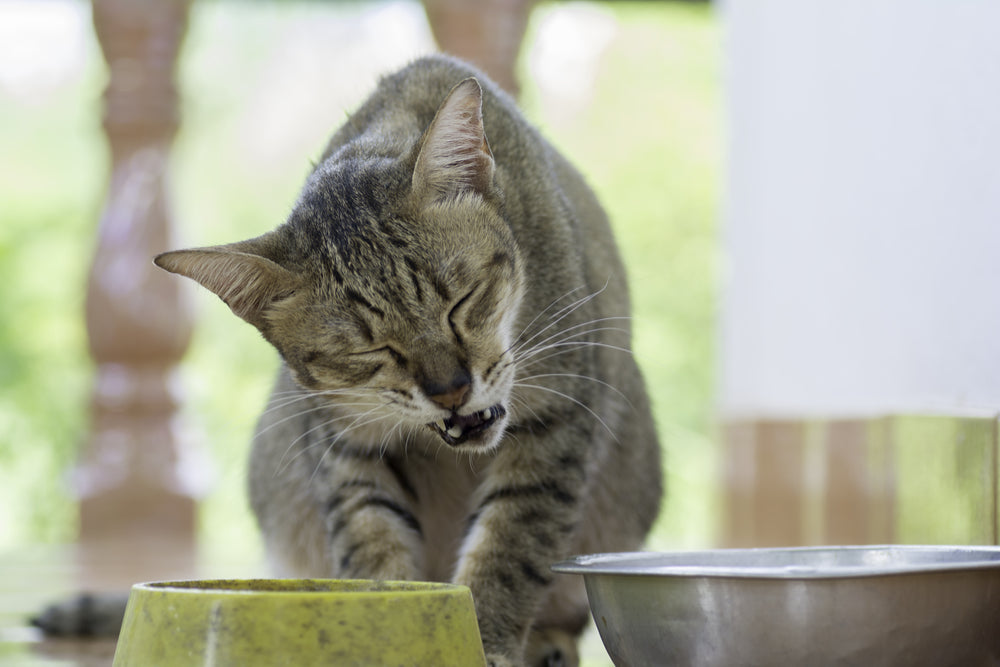February Pet Dental is an important month when it comes to your—and your pet’s—teeth.
It’s not only Dental Health Month for humans but also National Pet Dental Health Month for animals. Though you probably make it a priority to take good care of your teeth by brushing, flossing, and seeing your dentist regularly, you might not have realized that you also need to make your dog’s or cat’s oral health a priority as well.
With 85% of pets over the age of 3 years old suffering from some form of gum disease, it’s likely that many pet owners don’t know about the importance of good dental routines for Fido and Fluffy.
Check out this information on why good oral health is important for pets and how you can make sure that your pet’s teeth and gums are healthy and strong during National Pet Dental Health Month.
Oral Health Relates to Overall Health
When bacteria are allowed to grow in the mouth, they don’t just stay there. Because the gums contain a lot of blood vessels, bacteria get into the bloodstream and can travel throughout your pet’s body with any manipulation of the mouth, such as chewing, etc.
This is more likely to happen when there is inflammation. Though their immune system will take care of most of the bacteria, septicemia can occur. What is more important is control of inflammation of the gums, especially long-term inflammation.
Inflammation of the gums occurs as a reaction of the body to the presence of oral bacteria.
With home care, this inflammation can be controlled, but without it, inflammation can be established and progress, resulting in localized tissue destruction.
This is bad enough, but the chronic release of inflammatory byproducts results in a constant bombardment of the whole body, resulting in many organs being affected by this.
If not addressed, this oral inflammation progresses with time and, along with other factors, can affect multiple areas of the body such as the kidneys, heart, liver, joints, etc. Keeping the bacteria in your pet’s mouth under control can protect their other organs from painful, dangerous, and expensive-to-treat pathology (disease).
Loose Teeth and Inflamed Gums Are Painful
If you have ever had a toothache or a gum infection, you know how painful these dental maladies can be! Your pet feels the same pain in response to oral infections and inflammation.
Most pets are good at hiding their pain, and you might not know anything is wrong while your beloved furry family member is suffering. Some signs that your pet might be dealing with a painful mouth can include a lack of grooming in cats, drooling, not wanting to eat, and a general lethargic or despondent attitude.
Your dog might not want to play fetch or chew on their favorite chew toys, and your cat might begin looking unkempt, matted, and dirty.
Gum Disease Causes Bad Breath
Though you might not find your pet’s everyday breath to smell like roses, it should smell fairly neutral. They might have bad breath after polishing off a bowl of food, or if they have certain stomach conditions, but otherwise there should not be a foul smell.
A pet with gum infections or broken teeth, however, will have breath that smells very bad. If you can smell your pet’s breath when they’re not breathing on you, it’s likely that there’s an issue that needs to be investigated by your veterinarian.
Pets with Gum Disease Often Have Poor Nutrition
Since pets with gum disease, broken teeth, or loose teeth are often in pain, they will usually have trouble eating. The desire to eat is great but since the pet is in pain, they will alter their eating habits to avoid chewing and instead gulp their food down.
This is particularly true if your food of choice is dry kibble; cats and dogs that eat wet food might eat well enough even if they are in pain from poor oral health. Pets that aren’t eating well can lose weight at an alarming rate. Cats, in particular, are prone to liver disease if they aren’t eating properly.
And all pets can suffer from malnutrition, which can cause weakness, abdominal pain, diarrhea, and even death. Always watch your pet’s eating habits and contact your vet if they miss more than 1 meal (cats) or 2 meals (dogs), or if they are chewing differently than before.
How You Can Help
There are some ways that you can reduce the chances that your pet will develop poor oral health and ensure that gum disease is treated promptly if it occurs:
- Brush your pet’s teeth daily with a pet toothbrush to clean the oral cavity. Note that if not done daily, very little benefit is gained. Do not use toothpaste made for humans; if you desire, you can buy pet toothpaste, but it’s not necessary. Many cats and dogs will not allow this, but keep it in mind as a good habit to cultivate if you have an easygoing pet or if you get a new puppy or kitten.
- Examine your pet’s teeth every week to 2 weeks, but at a minimum of once monthly. Just take a look and make sure that their gums look pink and that there are no broken teeth. If a pet’s mouth is pigmented black, with gum disease one can observe tissue swelling that can bleed easily (palpation or brushing).
- Give your pet treats that are VOHC (Veterinary Oral Health Council) approved to encourage chewing to help remove plaque from the teeth.
- Consider giving your pet a supplement such as 1-TDC, which can help support good gum health.
- Take your pet to the vet every 6 months for a health evaluation. Part of that evaluation will be an oral evaluation.
If a pet caregiver performs good oral health care for their pet, oral hygiene procedures can be prevented and, at a minimum, their teeth and gums can be kept healthier for a much longer time period.
This will help in avoiding the extra cost on the animal’s body going under an anesthetic and your cost of the procedure. Further, remember that caring for your pet’s oral health is a year-round responsibility.
Though National Pet Dental Health Month is a great time to educate yourself on proper oral health care for your furry friend, caring for their teeth and gums should be a daily habit.
1-TDC Oral Health + Mobility Support for Dogs

$32.00
Keep your pet Happy, Active & Comfortable from Head-to-Tail with 1-TDC. This unique supplement is SO effective that it is recommended by TOP Veterinary Experts worldwide to maintain and improve your pet’s health in 4 important areas: Oral Health….… read more










